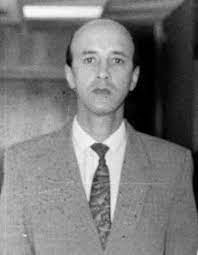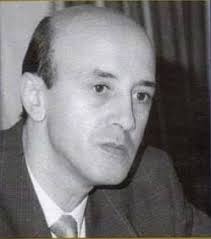
The late Professor Djillali Liabes was born on January 1, 1948 in the city of Sidi Bel Abbes. He grew up in the ‘Mont Plaisir’ neighborhood and received religious practice through daily reading of the Qur’an and hadiths. The family library also contained books on Islamic thought, in addition to the manuscripts of his father, Kaddour. Liabes", which he wrote on a regular basis by editing religiously oriented comments and summaries.
Sidi Bel Abbes, in the colonial era, was a city with a French army garrison, and the largest military barracks for the foreign ‘légion étrangère’. The people did not tolerate this blatant French military presence in their city, which generated discontent and rebellion in the souls, and this was one of the reasons for the Liabes family’s involvement in the ranks. The blessed liberation revolution, and even in its beginnings, when the family home became a place to store weapons and a refuge for the Mujahideen (the mujahideen of the historic Fifth State). Two of Djilali’s brothers and one of his sisters joined the ranks of the army and the National Liberation Front early, and the late Twelve-year-old Djillali seemed to know and be aware of The great tribulations caused by French colonialism in the psyche of his family, who lost his brother, the martyr Abdul Rahman, 17 years old, on the battlefields.
These tragic events were a turning point that transformed Djillali Liabes from a young teenager into a mature man. This is what contributed to refining his personality and searching for a clear-cut path and direction, as he chose reading as an essential pillar for revival and moving towards a future tinged with caution. He would read, without stopping, and in a voracious manner, everything he could find, including newspapers, novels, books, and magazines. It is a source of knowledge for every teenager and mature person who wants to know the truth.
After the baccalaureate, he left Sidi Bel Abbes and chose the Higher Normal School in Algeria, where he began studying philosophy. He began to become convinced and then enter into a kind of political commitment. In 1968, he and a group of his comrades initiated the establishment of a club for Marxist studies, and urged many students to read Marx and other philosophers.

After obtaining his bachelor's degree (bachelor's degree in philosophy), he chose to go deeper into the study of sociology and economics, and in 1971 he joined the research center affiliated with the Ministry of Planning (the Algerian Society for Research in Demography, Economics and Sociology), and over the course of 10 years he supervised one of the largest studies that... It was adopted by this academic center, entitled “The Private Sector in Algeria.” At the same time, he attended and discussed his third-year doctoral thesis entitled: “Private capital and industrialists in Algeria from 1962 to 1982” (1) at the University of Marseille, and then returned to the University of Marseille. Algeria as a professor and teacher of social sciences.
He continued his academic research journey and, in 1988, defended his state doctoral thesis at the University of Paris, entitled “Institutions, Regulators and the Industrial Bourgeoisie in Algeria: Elements of the Sociology of Endeavor.” Based on this solid scientific work, he participated in many national and international forums. His research and scientific works have remained to this day as a basic and necessary reference.
In 1990, he was appointed director of the Research Center in Applied Economics for Development (C.R.E.A.D.). This did not prevent him from continuing teaching for the benefit of first-year students. He also maintained the supervision of many students in their theses, and trained many in methods of scientific analysis, which made him convinced of the importance of establishing the “Algerian Futurism Association.” The man is considered an expert in foresight.
He was appointed Minister of Universities in June 1991 - at a time when Algeria witnessed bloody events - followed by profound defeats. He worked hard to revive this scientific institution according to standards of efficiency and credibility, and he was frank in diagnosing the disease of the management of the Algerian university.
Two years after this appointment, he was appointed again as Director of the National Institute for Comprehensive Strategic Studies (I.N.S.E.G.), and he supervised a future study called “Algeria 2005”, the aim of which was to limit the capabilities of Algeria and build a scientific forecast that would be enough to get the country out of the bottleneck and move forward to guarantee the future of generations. After oil, and in light of the management of a crisis resulting from external influences that are more than purely internal.
He married in 1972 with Mrs. Dalila Darqini, and he is the father of three children.
Djilali Liabes was one of the victims of the national tragedy that struck Algeria in its intensity. He was assassinated one spring morning on March 16, 1993, near his home in the popular neighborhood of Ibn Omar, Al-Qubba, Algiers. He is considered one of the brilliant and prominent thinkers, and the evidence is the abundance of his scientific production and the abundance of his academic interventions. He left the world when he was not yet 45 years old. He left in one of the worst eras in the history of independent and contemporary Algeria. His departure was a great loss to his country, his people, his family and his friends. His candle went out in The age at which his mature genius began to give the best of himself.
